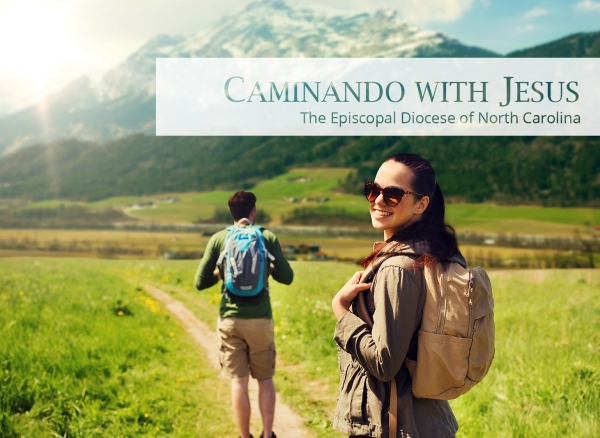CAMINANDO WITH JESUS: Heeding the Prophets

In the fifteenth year of the reign of Emperor Tiberius, when Pontius Pilate was governor of Judea, and Herod was ruler of Galilee, and his brother Philip ruler of the region of Ituraea and Trachonitis, and Lysanias ruler of Abilene, during the high priesthood of Annas and Caiaphas, the word of God came to John son of Zechariah in the wilderness. He went into all the region around the Jordan, proclaiming a baptism of repentance for the forgiveness of sins, as it is written in the book of the words of the prophet Isaiah,
“The voice of one crying out in the wilderness:
‘Prepare the way of the Lord,
make his paths straight.
Every valley shall be filled,
and every mountain and hill shall be made low,
and the crooked shall be made straight,
and the rough ways made smooth;
and all flesh shall see the salvation of God.’”
- Luke 3:1-6
“The word of God came to John son of Zechariah.”
Luke the Evangelist uses the language of the prophetic literature to introduce John the Baptist, presenting him as a prophet who is himself fulfilling the words of the anonymous prophet who we call Second Isaiah, in chapter 40 of the Book of Isaiah. In other places Jesus refers to John as “a prophet, and more than a prophet” (Luke 7:26-27). I find this so startling. In the Bible, there had not been prophets around for a long time, not since the last heir of David sat on his throne some 400 years earlier.
And so, the very language and the format St. Luke uses hints at the theme of the coming of the Son of David. For if a prophet appears, the king cannot be far behind. A very dangerous thing to say in the Roman empire that, with its legions of soldiers, imposed the notion there was only one king—Caesar—and one Son of God, for that matter—the very same Caesar.
Prophets are thought to be people who look to the future and predict the direction in which we are headed. That’s how we use the word in English (and in Spanish as well). As we come to the end of the calendar year, you will see more and more of this understanding of prophecy in tabloids and social media. Headlines and articles will presume to tell us what will happen in 2022 and so forth. And in some strains of the Christian tradition, there is always an ongoing concern with finding what the Bible says is going to happen and when. Prophecy is a thriving business.
But in the Scriptures, prophets are not primarily concerned with the future for its own sake. Their focus is not primarily on what is going to happen. Biblical prophets are actually much more concerned with the present. They care about how we live in the here and now.
Prophets call the leadership and people to live in such a way that they fulfill their covenant commitment to God, which included such things as doing justice, loving kindness and walking humbly with God (Micah 6:8). Prophets are really concerned with, as the scholar Walter Brueggemann put it, The Big Three: (1) orphans and widows, (2) the poor, and (3) the foreigners and strangers in their midst. Behind all this is the call to forsake all false gods—the idols of greed and security being chief among them.
In the times of the monarchy (c. 900-586 BCE), prophets dealt with the future only in terms of how people’s choices in the present had consequences. Failure to love God and to love neighbor meant loss of wellbeing and even loss of nationhood. Prophets engaged in forthtelling, not foretelling. Which, frankly, failed to win them friends, especially in high places.
But in the aftermath of the destruction of the temple (c. 587 BCE), the people came to see that it would have been far better if they had heeded the prophets instead of hating them.
And yet, grace abounds. The prophets who had formerly spoken of upcoming destruction also brought a word of restoration: the exile will end, the nation will be restored, and God will rule with justice, mercy and peace. Prophets made this promise because they saw that God’s love is unconditional and God’s mercy never ends.
And so it is that prophets figure prominently in Advent, especially John the Baptist. He prepares the way of Jesus by inviting people to turn around and walk in the right direction—the literal meaning of repentance. Heeding the prophets’ warnings is precisely about paying attention to how we live in the here and now. John arrived on the scene proclaiming a baptism of repentance for the forgiveness of sins. What sins do we need to forsake today? What amendment of life is the Christian family and each one of us called to make today? Let’s make those changes now, that we may encounter the joy of Christ in our daily lives!
The Rev. Daniel Robayo is the missioner for Latino/Hispanic ministries in the Diocese of North Carolina.
Tags: Caminando with Jesus
